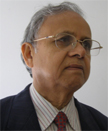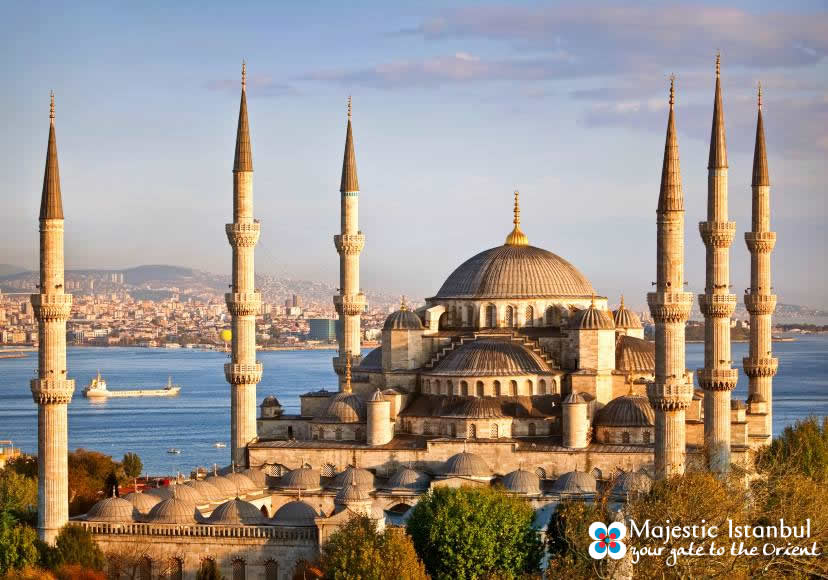www.aljazeerah.info
Opinion Editorials, August, 2016
Archives
Mission & Name
Conflict Terminology
Editorials
Gaza Holocaust
Gulf War
Isdood
Islam
News
News Photos
Opinion Editorials
US Foreign Policy (Dr. El-Najjar's Articles)
www.aljazeerah.info
Muslim Turkey Will Never Be Accepted to the Christian European Union
By Abdus Sattar Ghazali

Al-Jazeerah, CCUN, August 22, 2016
 |
|
| Sultan Ahmed's Blue Mosque in Istanbul, Turkey |
Will Muslim Turkey ever become a EU member?
Austrian Chancellor Christian Kern said that he would start a discussion among European heads of government to quit talks with Turkey about joining the European Union because of the country's democratic and economic deficits.
European leaders have voiced concern over Turkish President Tayyip Erdogan's crackdown on dissidents after a failed coup attempt month his idea of reintroducing the death penalty in Turkey.
In an interview with Austrian broadcaster ORF, Kern said: "We are all well advised to now say we're pressing the reset button," calling membership talks a "diplomatic fiction".
Nearly three decades after its official bid to join the European club,
Turkey is not yet a European Union member. Talks on possible EU membership
for Turkey have been taking place since 1963, when Ankara and Brussels
drafted an association agreement stating the country would aim to be a
member of the bloc. After formally applying in 1987, Turkey began accession
talks in 2005.
Tellingly, according to YouGov's latest Eurotrack
survey, there is immense hostility to Turkey joining the European
Union. Britain is the least hostile of all the EU countries with 67%
against the Turkish entry into the EU. In other countries the opposition is:
Denmark 82%, Finland 83%, France 74%, Germany 86% and Sweden 73%.
On June 22, 2016, Turkish President Recep Tayyip Erdogan bluntly said Europe
doesn't want his country to join the EU because the majority of the nation's
population is Muslim. He said his government will ask the public whether
negotiations with Brussels should continue. He was quoted by Reuters as
saying at a graduation ceremony in Istanbul:
"Europe, you don't want
us because the majority of our population are Muslim...we knew it but we
tried to show our sincerity,"Erdogan said at a graduation ceremony in
Istanbul.”
The comments were made on the eve of Britain's historic 'Brexit'
vote, in which UK citizens decided no to remain part of the EU.
Referring to Britain's vote, Erdogan stated that Turkey could also hold a
referendum on the EU. "We will go and ask the public whether we should
continue negotiations with the EU."
Interestingly, Turkey's chief negotiator with the EU, Egemen Bagis,was
quoted by daily Telegraph in September 2013, as saying that Turkey will
probably never become a member of the European Union because of stiff
opposition and "prejudiced" attitudes from current members. In the first
such admission, Egemen Bagis, said that his country had to accept that its
long cherished goal of joining the EU was
likely to end in disappointment.
Vatican opposes Turkish
membership of EU
In December 2010, The Guardian reported
that previously secret cables sent from the US embassy to the Holy See in
Rome indicated that the pope is responsible for the Vatican's growing
hostility towards Turkey joining the EU.
In 2004 Cardinal Ratzinger,
the future pope, spoke out against letting a Muslim state join, although at
the time the Vatican was formally neutral on the question.
The cable
released by WikiLeaks shows that Ratzinger was the leading voice behind the
Holy See's unsuccessful drive to secure a reference to Europe's "Christian
roots" in the EU constitution. The US diplomat noted that Ratzinger "clearly
understands that allowing a Muslim country into the EU would further weaken
his case for Europe's Christian foundations".
The Vatican's acting
foreign minister, Monsignor Pietro Parolin, responded by telling US
diplomats that Ratzinger's comments were his own rather than the official
Vatican position.
But by 2006 Parolin was working for Ratzinger, now Pope
Benedict XVI, and his tone had distinctly chilled. "Neither the pope nor the
Vatican have endorsed Turkey's EU membership per se," he told the American
charge d'affaires. "
In 2009, the American ambassador while briefing
in advance of President Barack Obama's visit, said that "the Holy See's
position now is that as a non-EU member the Vatican has no role in promoting
or vetoing Turkey's membership. The Vatican might prefer to see Turkey
develop a special relationship short of membership with the EU."
Roman Catholicism is the only religion in the world with the status of a
sovereign state, allowing the pope's most senior clerics to sit at the top
table with world leaders. The cables reveal the Vatican routinely wielding
influence through diplomatic channels while sometimes denying it is doing
so. The Vatican has diplomatic relations with 177 countries and has used its
diplomatic status to lobby the US, United Nations and European Union
in a concerted bid to impose its moral agenda through national and
international parliaments.
Pope Benedict’s anti-Islam
remarks were not a Freudian slip
In September 2006, Pope
Benedict XVI provoked outrage in the Muslim world with a speech given at the
University of Regensburg in Germany. The lecture, entitled Faith, Reason and
the University: Memories and Reflections, explored the historical and
philosophical differences between Islam and Christianity.
During his
address, Pope Benedict quoted a dialogue between 14th Century Christian
emperor Manuel II Paleologus and a Persian Muslim: "Show me just what
Muhammad brought that was new and there you will find things only evil and
inhuman, such as his command to spread by the sword the faith he preached."
Ali Bardakoglu, the head of Turkey's state-run directorate of religious
affairs, called the Pope's remarks "provocative, hostile, prejudiced and
biased". The deputy leader of the Turkish ruling AK party, Salih Kapusuz,
declared that "he has a dark mentality that comes from the darkness of the
Middle Ages… Benedict, the author of such unfortunate and insolent remarks
is going down in history for his words… in the same category as leaders such
as Hitler and Mussolini".
Pope Benedict was forced to issue an
‘explanation’ and not an ‘apology’ in response to the angry reactions. Many
analysts pointed out that the Pope did not apologize outright, as Muslims
demanded, for his remarks implying that Mohammed's teachings were evil and
inhuman. Instead, he said he was "deeply sorry" over the reaction to his
words.
The Pope said: "I am deeply sorry for the reactions in some countries to
a few passages of my address at the University of Regensburg, which were
considered offensive to the sensibility of Muslims. These in fact were a
quotation from a medieval text, which do not in any way express my personal
thought. I hope this serves to appease hearts and to clarify the true
meaning of my address, which in its totality was and is an invitation to
frank and sincere dialogue, with mutual respect."
Vatican
rebuffs Muslim outreach: Quran cited as the main obstacle
Tellingly, in October 2007, Vatican rebuffed a massive outreach effort by
138 Muslim religious leaders and scholars who sent a letter to Pope Benedict
XVI in an attempt to improve Christian-Muslim relations.
The letter,
titled “A Common Word Between Us and You,” which is also addressed to
Christianity’s other most powerful leaders, including the Archbishop of
Canterbury and the heads of the Lutheran, Methodist and Baptist churches,
seeks to recognize similarities between Islam and Christianity as a way of
fostering mutual understanding and respect between the two religions.
It compares texts from the Bible and the Koran to argue that Christians and
Muslims worship the same God. Both believe in “the primacy of total love and
devotion to God,” and both value love of neighbor and a peaceful world.
In a belated response to the Oct. 13, 2007 letter, Cardinal Jean-Louis
Tauran, President of the Pontifical Council for Interreligious Dialogue in
the Roman Curia, told the French Catholic daily La Croix, on Oct. 26 that a
real theological debate with Muslims was difficult as they saw the Quran as
the literal word of God. “Muslims do not accept that one can discuss the
Quran in depth, because they say it was written by dictation from God. With
such an absolute interpretation, it is difficult to discuss the contents of
faith.”
Another reading of his comments suggests that the Vatican
does not want a dialogue with Muslims unless they change their belief in the
Quran as a revealed book. Like most Christian theologians, the Muslims have
to believe that sacred scriptures are the work of divinely inspired humans.
Abdus Sattar Ghazali is the Chief Editor of the Journal of America (www.journalofamerica.net)
email: asghazali2011 (@) gmail.com
Share the link of this article with your facebook friends
|
|
|
|
||
|
||||||


